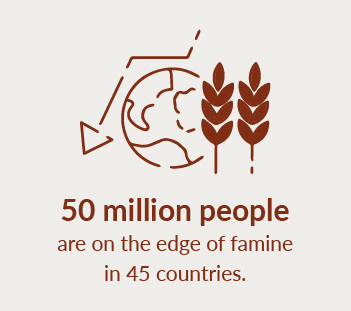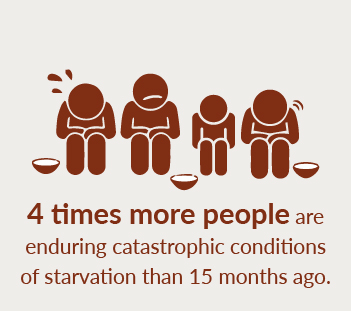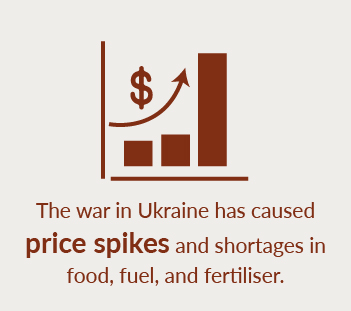“I cannot afford to feed the children anymore,” says Viola Woro, a 37-year-old mother of six and guardian to her younger sister Christine’s two children. Christine’s husband died in 2019, leaving her traumatised and unable to take care of her own children. Viola recalls, “When Lejong and Peter (Christine’s children) were brought to me by a neighbour, they did not look healthy. They have been with me for close to two years now.”
“A few weeks ago, Peter started having diarrhoea. His skin colour changed, his body was swollen and he lost his appetite. I brought him to World Vision’s nutrition site where he was diagnosed with Kwashiorkor, a severe acute form of malnutrition. He was admitted into the Outpatient Therapeutic Feeding Programme and was given a dose of Plumpy Nut and medicines,” Viola says.

A World Vision Nutrition Assistant (far left) examines Peter’s legs.
Peter got a check-up at a hospital in the capital city of Juba, where he was diagnosed with a blood and kidney infection. Later, he was also found to have a respiratory tract infection and nutritional oedema. World Vision is helping with his treatment, and Viola says, “Seeing Peter healthy again will take some of my stress and sorrow away.”
Viola’s and Peter’s situation is sadly common. Rahab Kimani, World Vision’s Roving Technical Nutrition Manager says, “The levels of acute food insecurity driven by declining crop production, sub-optimal maternal, infant and young child nutrition, and poor care practices, among other things, have seen many children like Peter suffer from acute malnutrition.”
In 2020, World Vision’s Juba Urban Nutrition Project, supported by the World Food Programme and UNICEF, reached a total of 108,439 children aged 6-59 months with screenings for acute malnutrition. 2,004 were identified with severe acute malnutrition and 4,957 with moderate acute malnutrition.
From there, 100,359 caregivers were offered individual counselling sessions through the Maternal, Infant and Young Children Nutrition Programme in World Vision’s 15 nutrition sites around Juba.





